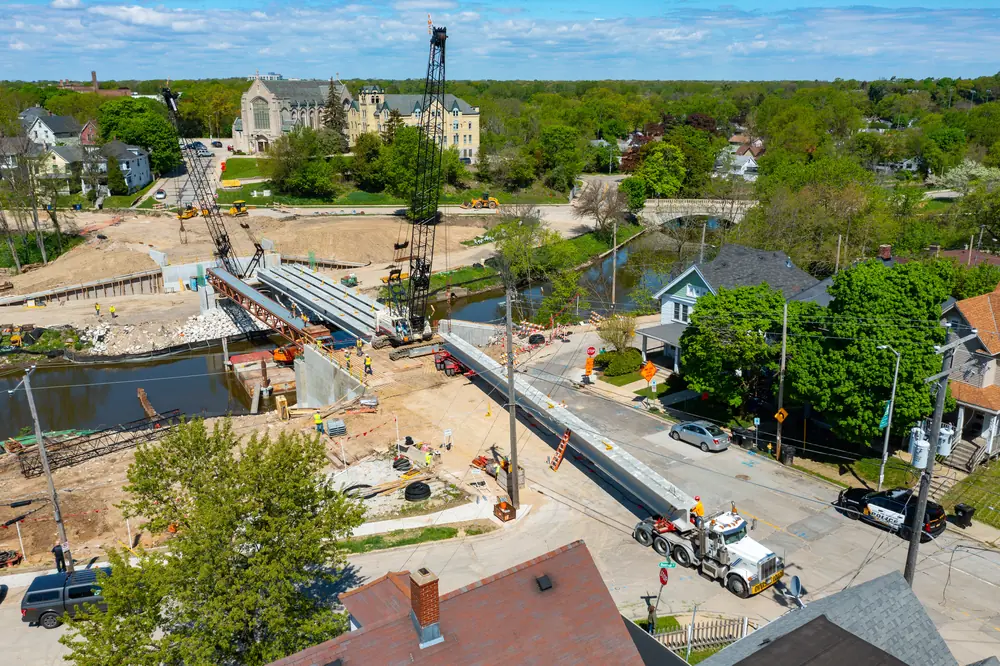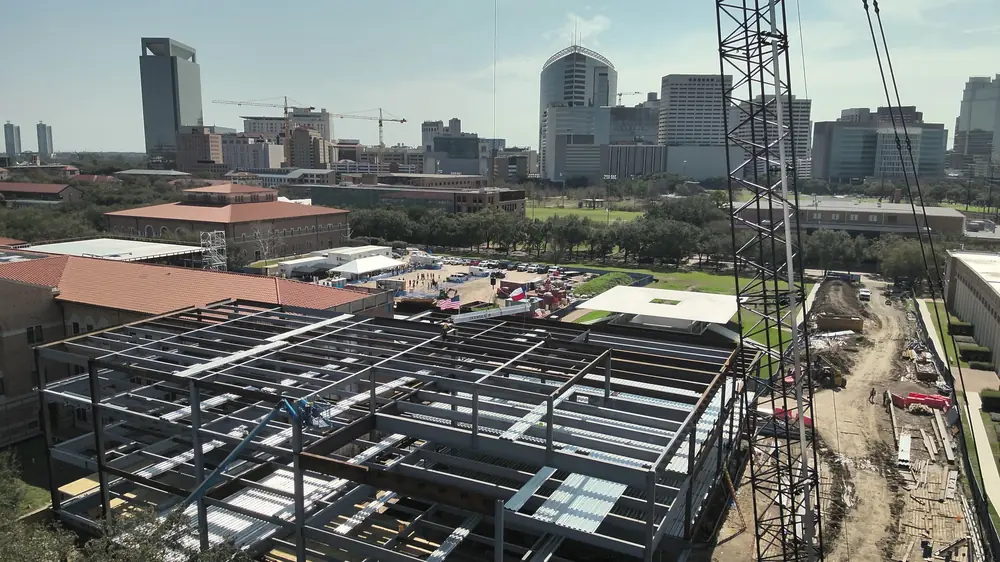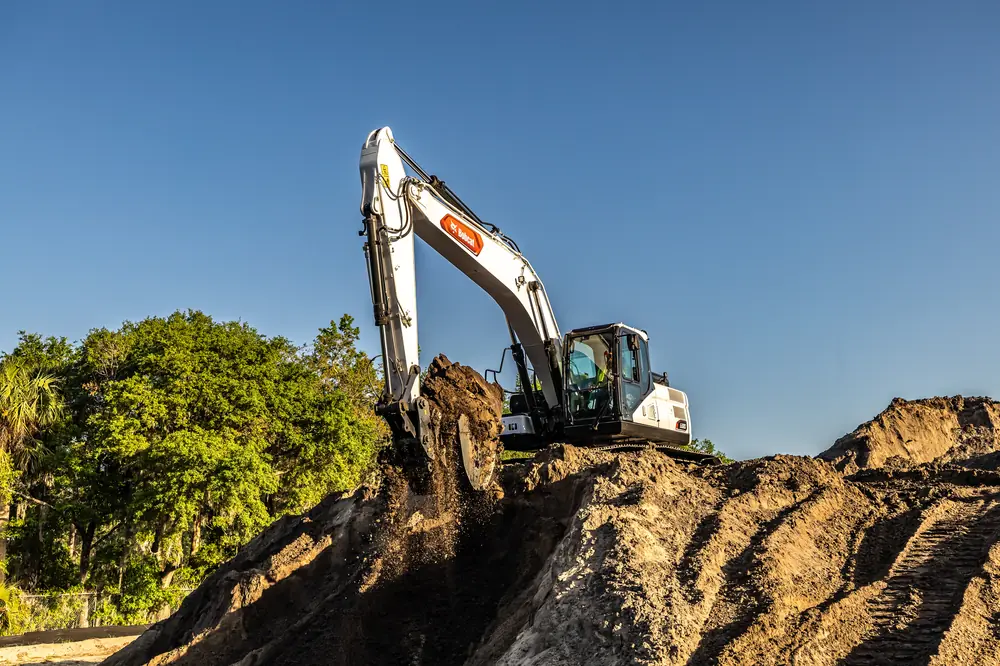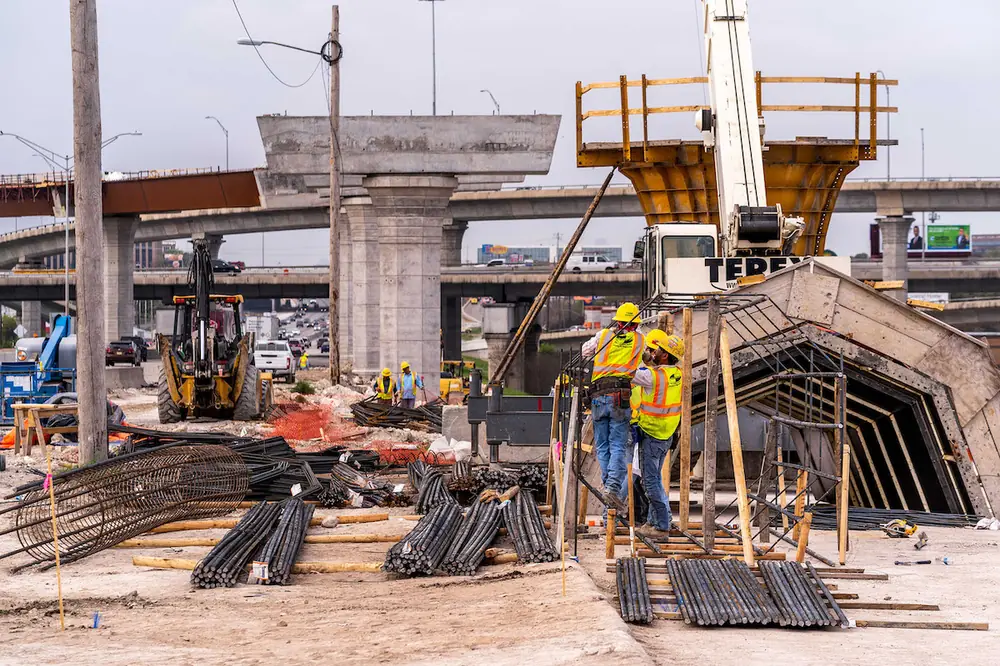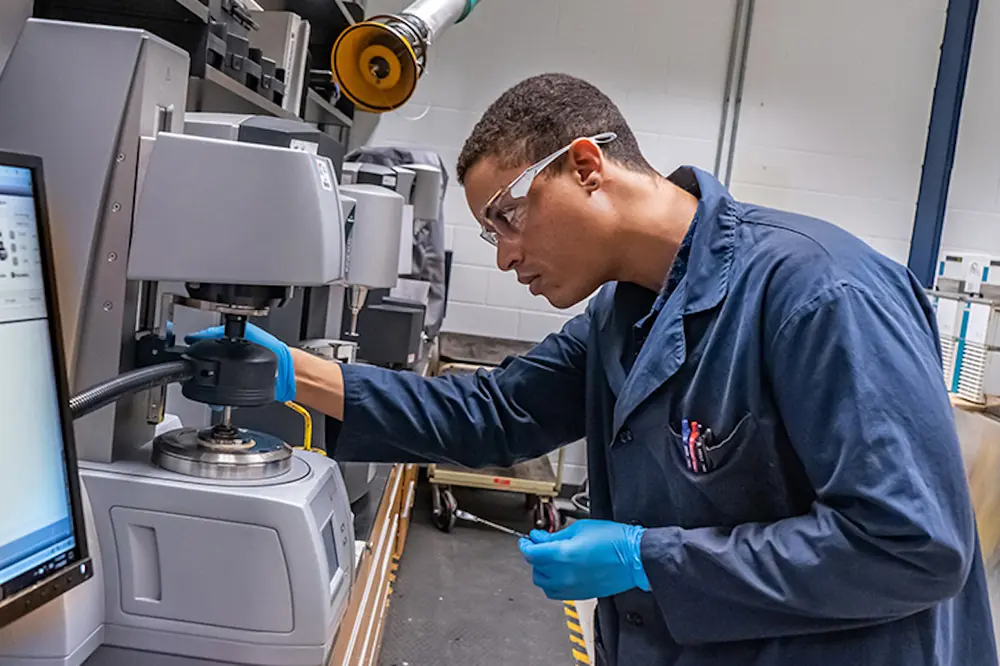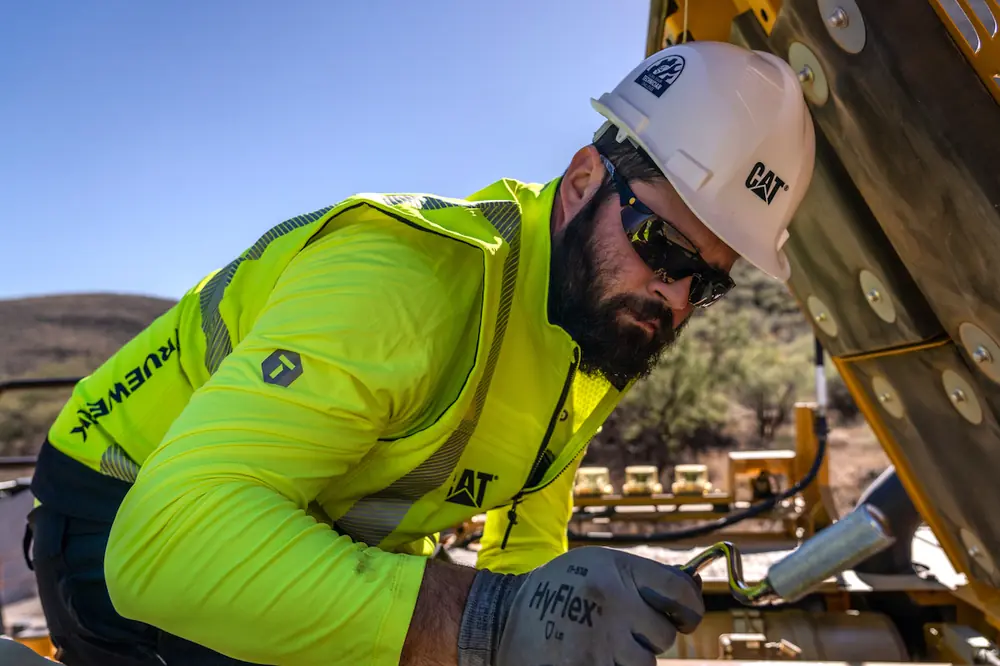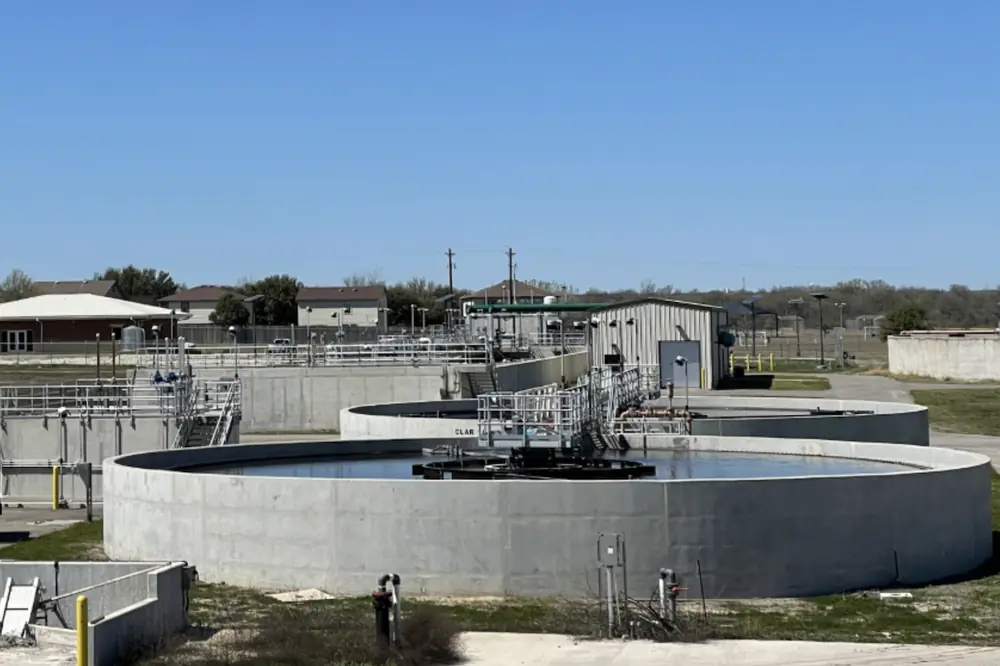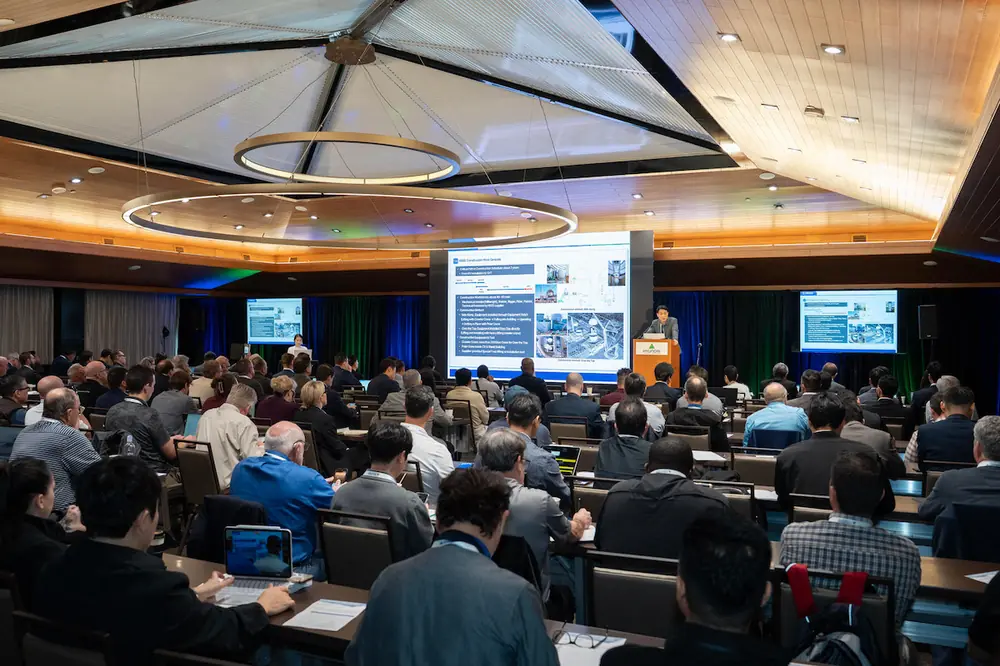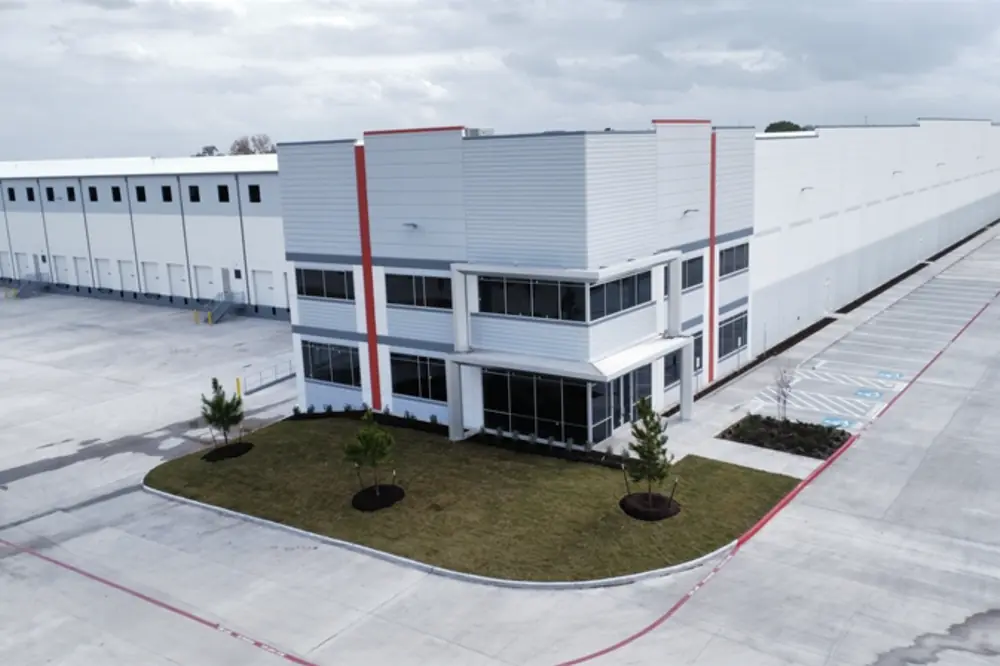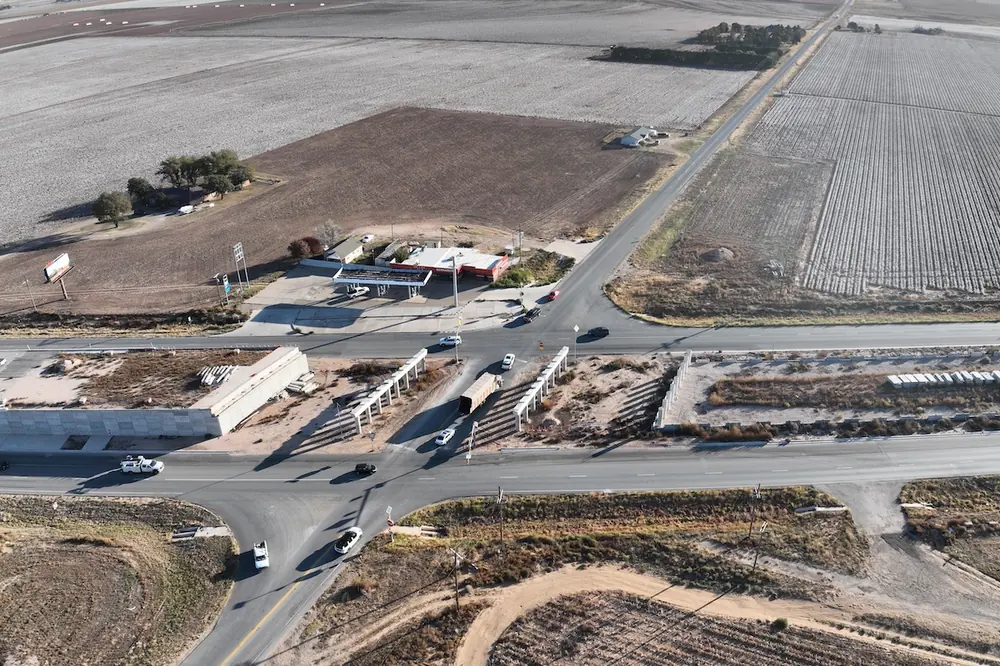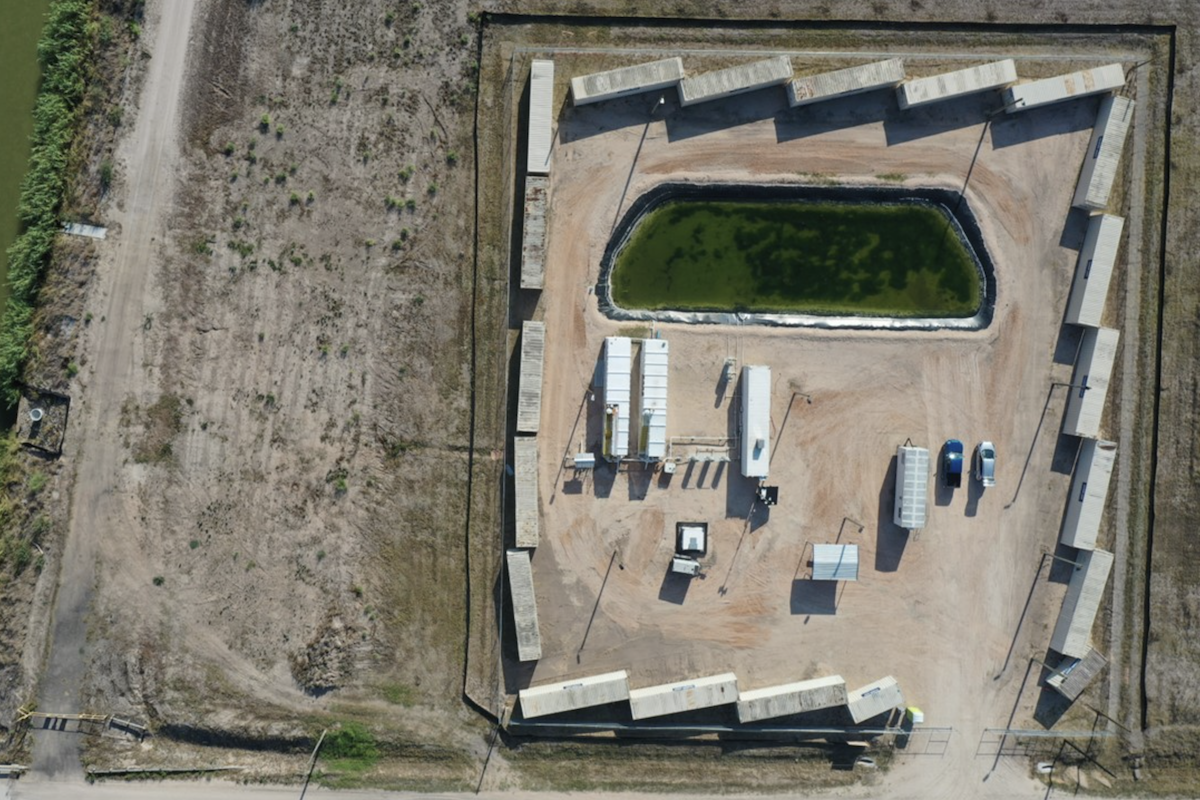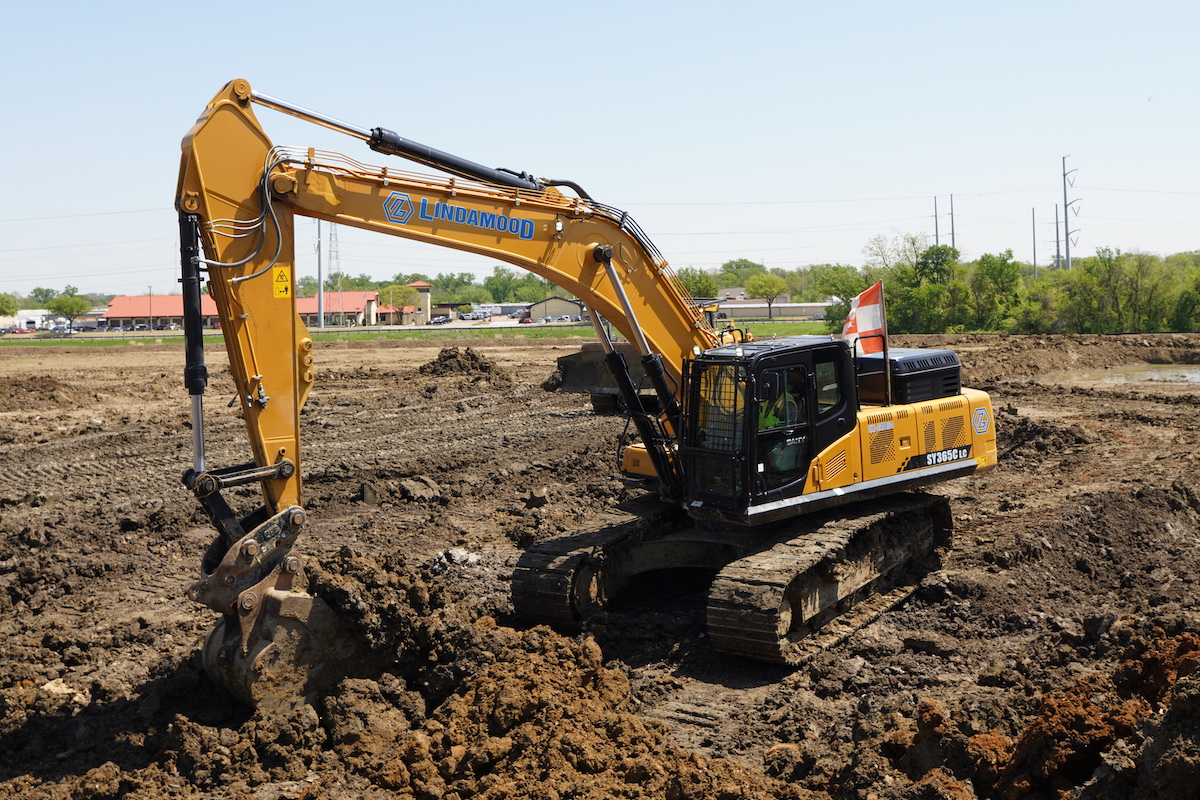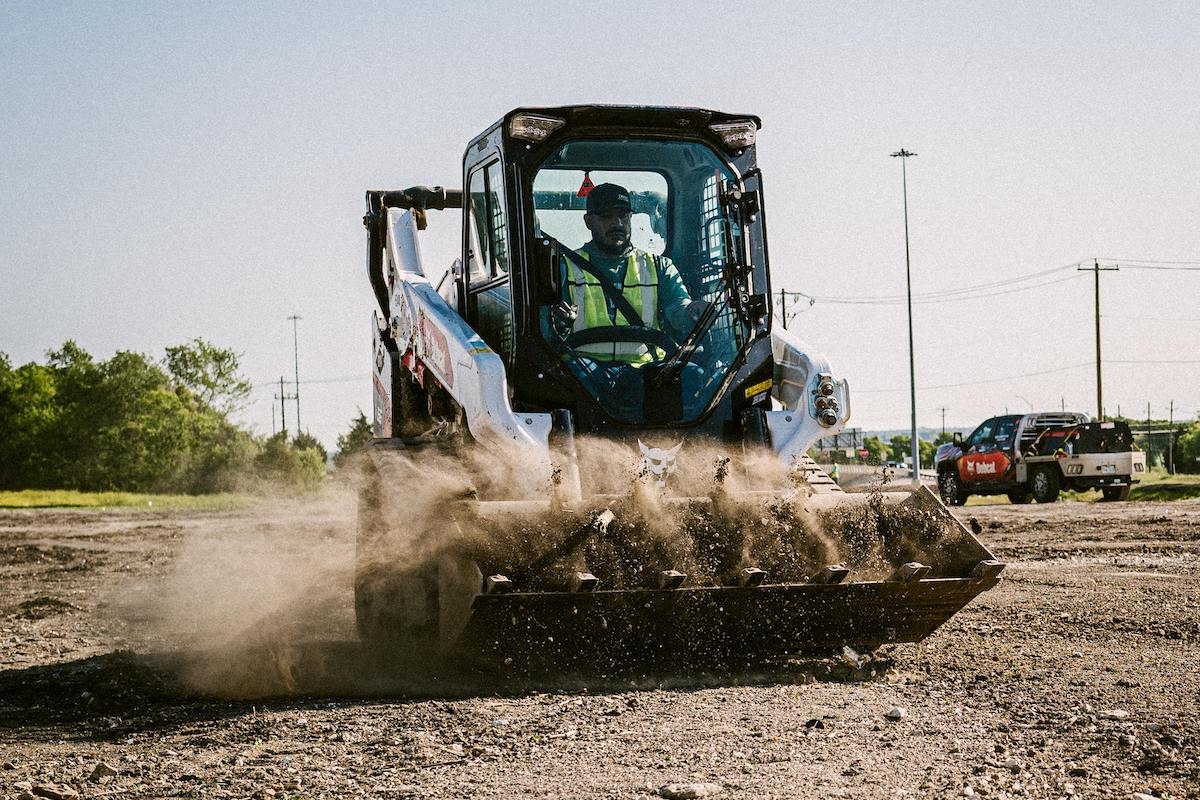“Fast-track construction and its proper implementation are keys to successful growth of a resilient infrastructure,” said Matthew Singel, P.E., Director of Technical and Market Development for Anderson Paving, Inc., of Dallas.
Through most of his 17 years in the cement industry, Singel has promoted awareness and implementation of new strategies to improve infrastructure construction. He joined Anderson Paving last fall to focus on state-of-the-art technologies and offer training to design professionals and their clients on design, specification, and quality assurance. Prior to that, he worked for the Cement Council of Texas (CCT), most recently serving as Director of Soil Cement and Roller Compacted Concrete (RCC) Pavements.
In addition, “As an active member appointed to multiple committees within the National Academy for Engineering’s Transportation Research Board, I’m able to share information about new technologies with design and construction professionals for implementation that benefits everyone,” he said.
Singel also serves as a voting member on the American Concrete Institute’s RCC Pavement Design and Construction Committee and as co-chair of the annual Civil Engineering Conference (CECON) of the American Society of Civil Engineers, Texas Section.

| Your local Bomag Americas dealer |
|---|
| WPI |
From a fairly young age, Singel knew he wanted to become a civil engineer. “I was born and raised in, Johnstown, a western Pennsylvania town in the Allegheny Mountains rich in steel, coal, and civil engineering history,” he said. “Early on, I enjoyed the visual and logic applications in geometry and trigonometry. When I learned that those are the basis of much of civil engineering, I pursued it.”
He earned a bachelor’s degree in Civil Engineering Technology from the University of Pittsburgh at Johnstown, Pennsylvania. Prior to his work with Anderson Paving and the CCT, he served as Specialty Pavements Engineer for the Southeast Cement Promotion Association in Duluth, Georgia; Technical Representative for E.J. Breneman, L.P., in West Lawn, Pennsylvania; and Municipal Project Engineer for Benatec Associates, Inc., in New Cumberland, Pennsylvania.
In his interview with Texas Contractor, Singel shares the lessons he learned throughout his career and insights on the newest technologies and trends for infrastructure construction.
Who has been the biggest influence on your career?
I’ve had many positive influences over the years, including family, friends, coworkers, and my parents, who instilled work ethic, faith, and service to others. One of my engineering instructors, retired Marine Corps Reserve Colonel Robert Martinazzi, always began class with an enlightening story or quote. Once he told us that we can start each day by saying, “Good morning, God!” or “Good God, morning!” Our daily decision to focus on the positive or negative creates a ripple effect, influencing everyone we encounter.
What’s the best advice you ever received?

| Your local JCB North America dealer |
|---|
| Monk JCB |
| BOSS JCB |
| ASCO Equipment |
| South Star JCB/Meinecke |
That same college instructor shared that in a horse race, the first-place finisher commonly wins by a short length rather than a large distance. The little things we do each day can make all the difference for both personal success and improving the world in some small way.
What lessons have you learned in your professional life?
First, everyone I meet knows something that I do not and has experienced things I have not. Listening more and talking less is the best way to broaden my knowledge as a professional and my understanding as a person. Sharing what I learn then contributes to the world rather than simply taking from it. Second, make decisions. Trust your experience and common sense. Some situations need in-depth research, but most of the time your instinctive decision is very good, if not the best one in the end.
What professional achievement makes you proudest?
Participating in peer review of some of the most current transportation research and development technologies from around the world through my work with the Transportation Research Board is an honor I don’t take lightly. I’m also proud to have been part of the team that first conveyed the value of RCC pavement to engineers at the Port of Houston’s Bayport Terminal Container Yards in 2007. Today, after multiple expansions, the Bayport Terminal stands as the largest industrial application of RCC pavement.

| Your local Wirtgen America dealer |
|---|
| Kirby-Smith Machinery |
| Nueces Power Equipment |
What are the newest advancements in pavement construction?
Soil stabilization, pavement reclamation (recycling), and pavements that allow quick return to traffic are playing growing roles. Full-depth reclamation – an in-place recycling of the existing asphalt pavement or base section, commonly with portland cement – creates a stabilized base to support a new wearing surface. Any time an “in-place” technology can be used over a “remove and replace” one, significant time is saved and we reduce the burden on existing virgin material reserves, as well as the environmental impact of processing and transportation. In addition, the acceptance of RCC pavement as a fast, efficient option continues to grow. Once a heavy industrial and military pavement option, it’s now becoming an attractive alternative for municipal streets and elsewhere.
What new technologies do you see on the horizon?
Following on the heels of the sustainability movement, resilient infrastructure is a growing trend. The goal of resilient design is to minimize the damaging impact of natural disasters, terrorist events, or random accidents on infrastructure, while expediting the infrastructure’s return to use.
What are the biggest challenges with new technologies?

| Your local Trimble Construction Division dealer |
|---|
| SITECH SE Texas |
| SITECH Tejas |
Constructing resilient infrastructure requires a change in mindset, from inception through design and construction. The low-bid system is counter to the more lifecycle-based approach that resilience demands. Selecting materials and construction techniques that focus on longevity might increase initial costs a bit, but can dramatically extend lifespan and reduce maintenance costs. In the end, resilient construction helps buildings, pavements, and utility lines become much less expensive with a smaller inconvenience to the public during a destructive event.









